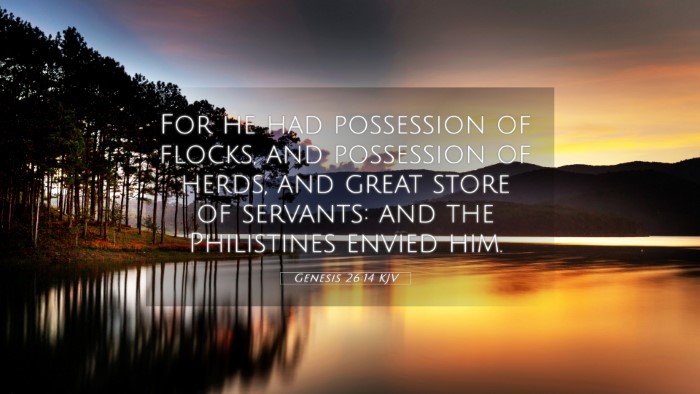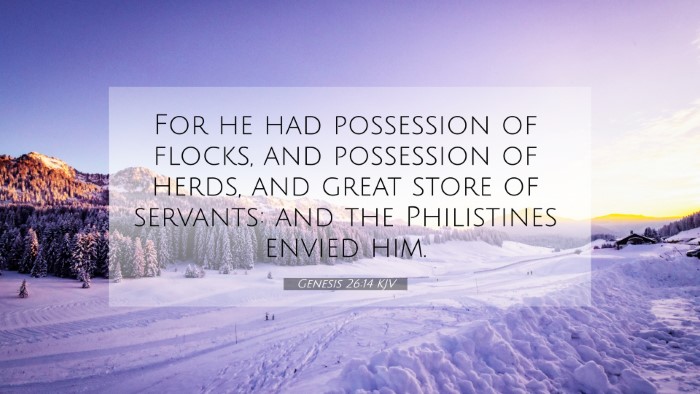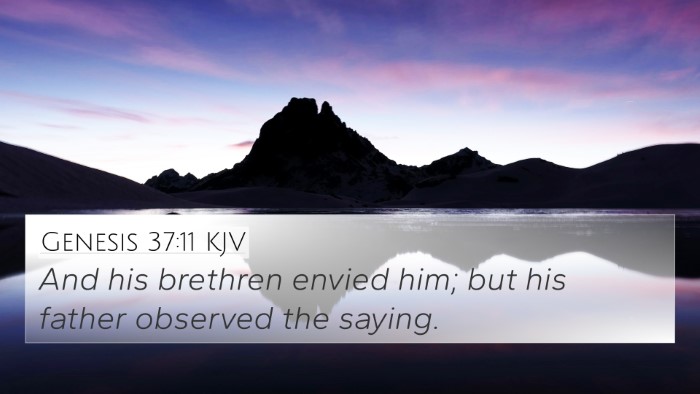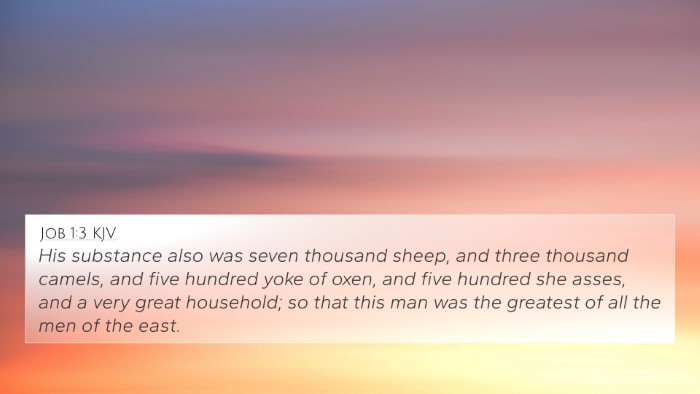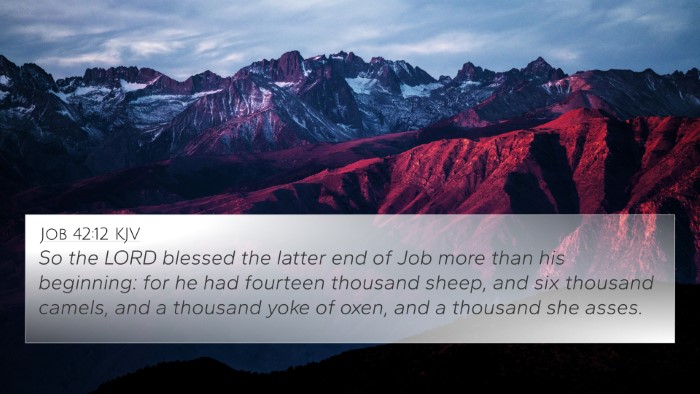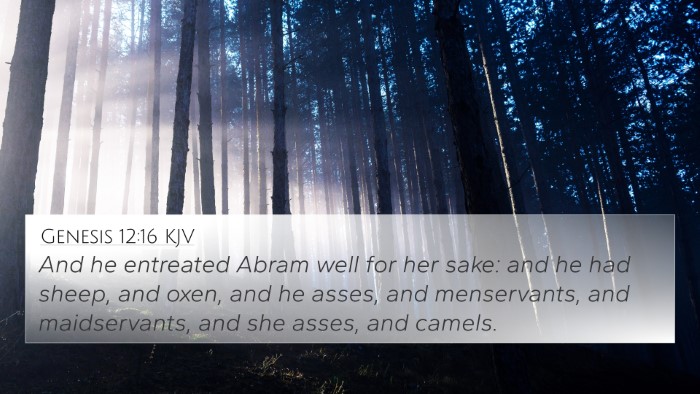Understanding Genesis 26:14
Genesis 26:14 states, "For he had possessions of flocks, and possessions of herds, and great store of servants: and the Philistines envied him." This verse highlights the prosperity of Isaac and the envious attitude of the Philistines towards him. To better understand this verse, we can pull insights from various public domain commentaries such as those of Matthew Henry, Albert Barnes, and Adam Clarke.
Summary of Insights
This verse provides a crucial snapshot of Isaac's life during his time in Gerar. His abundant wealth was not merely a testament to his hard work but also a sign of God’s blessing on him. The envy of the Philistines illustrates a broader theme of the tension between God’s people and those outside His covenant community.
Matthew Henry's Commentary
Matthew Henry emphasizes that Isaac's great possessions were a visible mark of God's blessings. He notes that prosperity can often attract envy, as seen with the Philistines. This jealousy leads to hostility, which may force God's people into difficult situations, requiring them to trust Him for guidance and protection.
Albert Barnes' Commentary
Albert Barnes expands on the nature of the Philistines' envy, explaining how it often arises from the competition created by someone else's success. He highlights that Isaac's wealth wasn't merely material but encompassed his herds, flocks, and servants, indicating a comprehensive success that provoked a deeper sense of rivalry among the Philistines. Their response is a reflection of human nature – often, the success of others brings out negative emotions.
Adam Clarke's Commentary
Adam Clarke interprets this passage as a demonstration of the promise God made to Abraham and subsequently to Isaac. He points out that Isaac inherited Abraham's blessings, which included wealth and numerous descendants. Clarke also notes that the hostility from the Philistines foreshadows the ongoing conflicts between Israel and the surrounding nations.
Thematic Bible Verse Connections
Several other Bible verses resonate with the themes found in Genesis 26:14, particularly regarding jealousy and God's favor. Here are some cross-references that illuminate these themes:
- Genesis 12:2 - God's promise to Abraham that he would become a great nation and be blessed.
- Genesis 30:30 - Jacob’s reflection on how his labor led to prosperity, paralleling Isaac's success.
- Exodus 1:7 - Israelites flourishing in Egypt, causing envy among the Egyptians.
- 1 Samuel 18:6-9 - Saul’s jealousy towards David when the people praised David’s military success.
- Psalm 37:1 - A reminder not to fret because of those who do evil or envy wrongdoers.
- Proverbs 14:30 - A heart at peace gives life to the body, but envy rots the bones.
- James 3:16 - Where there is envy and selfish ambition, there will also be disorder and every vile practice.
Reflections on Prosperity and Envy
The abundance Isaac experienced serves as a reminder of several biblical truths. Prosperity can act as a double-edged sword, bringing both blessings and challenges, including envy from others. It urges believers to handle their blessings with humility.
Tools for Bible Cross-Referencing
To delve deeper into the connections between Bible verses like Genesis 26:14 and others, using tools for Bible cross-referencing can be incredibly beneficial:
- Bible concordance - A directory of words and phrases found in the Bible, aiding in locating verses.
- Bible cross-reference guide - Helps identify thematic connections between various scriptures.
- Cross-reference Bible study - A methodology for studying related verses in context.
- Bible chain references - A method to follow related verses through the Bible for thematic studies.
Conclusion
Understanding the meaning behind Genesis 26:14 is enriched through comparative analysis with other scriptures. By examining the envious actions of the Philistines and God's blessings upon Isaac, readers gain insights into the nature of divine favor and the reactions it can provoke. This verse encapsulates significant themes of prosperity, jealousy, and God's faithfulness, further illuminated through the lens of cross-referenced biblical texts.

